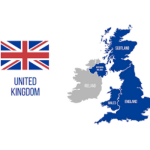
The United Kingdom is set to implement a significant increase in visa fees in 2025, a move that will impact travelers, students, and workers planning to visit, study, or work in the country.
The fee hikes were detailed in a report published on the official UK government website, which was reviewed on Tuesday. According to the announcement, the new charges will take effect starting April 9, 2025, while additional price increases for travelers from visa-exempt countries requiring an Electronic Travel Authorisation will begin on April 2, 2025.
The cost of a Standard Visitor Visa, which allows stays of up to six months, will rise by 10 percent from £115 to £127. Fees for longer-term visitor visas will see steeper increases, with the two-year visa rising from £432 to £475, the five-year visa increasing from £771 to £848, and the ten-year visa climbing from £963 to £1,059.
The Electronic Travel Authorisation fee, currently priced at $12, will increase by 60 percent to $20. This change will affect travelers from countries that do not require a visa but still need ETA approval before traveling to the UK.
International students will also face higher visa costs. The standard Student Visa fee for main applicants and their dependents will increase from £490 to £524. The same fee will apply to Child Student Visa applications, while those enrolling in short-term English language courses (lasting six to eleven months) will now pay £214, up from £200.
Various work visa categories will also see significant fee hikes. The Health and Care Worker Visa will rise by 28.2 percent, from £367 to £470. The Skilled Worker Visa for shortage occupations will increase by 26.3 percent, also reaching £470. The Innovator Founder Visa, aimed at entrepreneurs, will now cost £1,274, up from £1,191, while the Start-up Visa will rise from £435 to £465.
In December 2024, British High Commissioner to Nigeria, Richard Montgomery, highlighted that Nigeria has been a major beneficiary of UK visa policies. He noted that in recent years, the UK has granted approximately 300,000 new visas to Nigerians, a figure that surpasses the country’s visa relationships with other nations.





